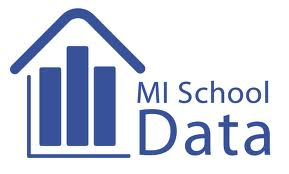Michigan Read by Grade Three
What is the law all about?
In October of 2016, the Michigan Legislature passed Public Act 306 that requires schools to identify learners in Grades K-3 who are struggling with reading and writing and to provide additional help. This law requires schools to provide extra support for students who are not reading at grade level in Kindergarten through 3rd Grade. Mt. Morris Consolidated School District is committed to providing the high-quality instruction, support, and resources necessary to meet the needs of its students in its mission to inspire excellence, instill integrity, and foster innovative thinking for lifelong learning. Michigan Department of Education has put together informational videos related to the Read By Grade 3 (RBG3) law:
What do I need to know as a parent?
- Your child's reading progress will be closely monitored by highly trained staff beginning in Kindergarten
- If your child is reading below grade level, a plan to improve reading will be created. This means your child's school will work with your child to find where your child needs support in his or her reading development and create a plan to support him or her. This plan includes:
- Extra instruction or support in areas of need.
- Ongoing checks on reading progress.
- A read at home plan that encourages you and your child to read and write outside of the school day.
- Your child may be encouraged to participate in summer reading programs.
- The extra supports in your child's reading improvement plan will occur in small groups during the school day. Your child will not miss regular reading instruction.
How can I support my child?
Many of the steps parents can take start early on with their children, and can help them learn to read earlier and thus have more success with learning to read while in school. Below are some steps that parents can take to support their children in developing life-long skills that come from being able to read.
Birth to Age 5:
- Read out loud to your child every day, no matter how old they might be.
- Listen to your child read.
- Echo read (you read a line, then they repeat what you read).
- Read together at the same time.
- Reread your favorite stories.
- Help build you child's vocabulary by commenting on things that your child finds interesting during playtime or a trip to the grocery store. Be sure to talk with your child, rather than talking at them.
- As they get older, talk to your child about what they are reading by asking questions, such as:
- What is your favorite part of the story?
- What do you think will happen next?
- How would you feel if that happened to you?
- Encourage enthusiasm for learning by helping your child to explore and discover how things work.
Grades K-3:
- Have your student read for at least 30 minutes every day. Encourage them to choose books that they are interested in and ask them questions about what they are reading.
- Talk to your student's teacher and ask if your child is on track to be reading at or above grade level by 3rd Grade. Ask how you can help improve or advance their reading skills.
- Ask questions about your student's homework and what happened in school every day. If possible, provide a dedicated place and time for your child to complete their homework.
How can I support my child with Phonemic Awareness?
Phonemic awareness is critical to literacy because this is where early readers begin to hear and distinguish sounds. Please click below for resources to assist your child with their Reading At Home Plan area of Phonemic Awareness.
How can I support my child with Phonics?
Phonics plays an integral part in the development of literacy skills because it promotes the ability to understand how letters and sounds relate to one another. Please click below for resources to assist your child with their Reading At Home Plan area of Phonics.
How can I support my child with Fluency?
Fluency is imperative to reading because it allows a reader to use skills for knowing the words they are reading with a sufficient speed for supporting understanding of the content of the reading. Please click below for resources to assist your child with their Reading At Home Plan area of Fluency.
How can I support my child with Vocabulary?
Vocabulary provides crucial support for understanding the meaning of words in reading passages. Please click below for resources to assist your child with their Reading At Home Plan area of Vocabulary.
How can I support my child with Comprehension?
Comprehension provides a key gateway between literacy and the ability to think at higher and deeper levels. Please click below for resources to assist your child with their Reading At Home Plan area of Comprehension.
How can I support my child with Writing?
Writing forges a pathway for learners to put their thoughts and ideas to paper. Please click below for resources to assist your child with their Reading At Home Plan area of Writing.
More Information on Read by Grade Three Law
Additional Support Resources

